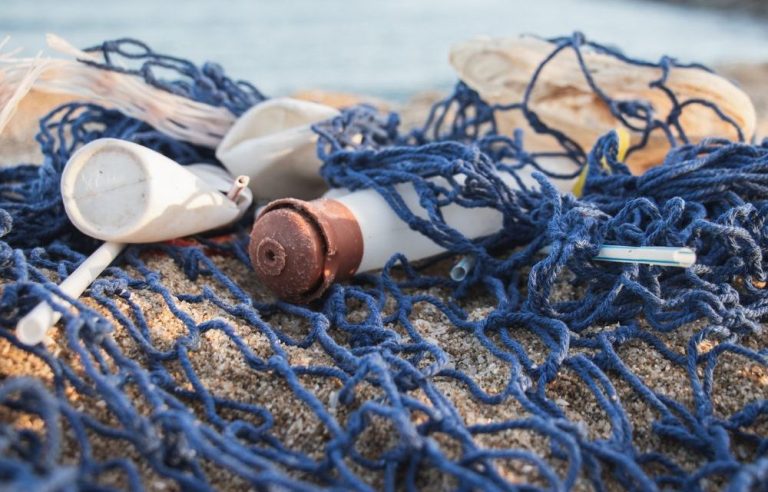79 percent of the 8.3 billion tonnes of plastic created since the 1950s still accumulates in our environment. Plastic pollution frequently litters the UK’s coast, endangering wildlife and generating microplastics, which can enter the food chain. Here, Matthew Stone, Managing Director at Teysha Technologies, discusses the varied measures groups like Surfers Against Sewage and the UK Government have taken to reduce pollution on our beaches.
A welcomed break from the bustle of city life, we often associate a trip to the coast with fresh air and scenic landscapes. It is no surprise, therefore, that over 55 percent of people in Britain want to buy a seaside home. Sadly, the idyllic view of our beaches is being spoiled by pollution.
Beach pollution counts as any material that harms our coasts. It could come from plastic waste, litter, sewage or oil. Not only is it a public health risk but it also harms wildlife and its habitats, reduces property value and can limit economic growth in a community.
Plastic production is expected to double from 400 million tonnes to 800 million tonnes by 2040, so we must work together with the government, public, charities and businesses to tackle beach pollution. After all, what we see on the beaches is miniscule compared to what is floating around the rest of the ocean.
Sewage pollution
In the summer of 2022, water companies were criticised by the public for dumping untreated sewage into the sea which led to pollution warnings for more than 100 British beaches.
In the UK, water companies can use combined sewer overflows to release sewage and rainwater in times of extreme rain to prevent flooding. However, many have called into question whether the discharge of sewage was necessary because of the length and frequency recorded.
Despite an excellent rating in water quality, Ryde beach on the Isle of Wight experienced a spike in faecal pollution 40 times higher than normal after a local water company released untreated sewage for more than two-and-a-half hours. Beach-goers were warned to keep away from the area because of an increased risk of exposure to pathogenic bacteria that can cause gastroenteritis and other infections.
In August 2022, the then environment secretary, George Eustice announced that water companies must invest £56 billion over 25 years into a long-term programme. The investment’s purpose is to increase the capacity of a company’s networks and treat sewage before it’s discharged. If water companies do not meet these targets, they could face substantial fines or be made to return money to customers.
Since this plan was announced, the UK Government has changed significantly, with Rishi Sunak now the Prime Minister and a new cabinet announced. It is vital that the new government prioritises tackling sewage pollution by keeping this plan on the government business moving forwards, ensuring water companies can no longer discharge sewage into our waterways, except under exceptional circumstances.
Plastic pollution
One way that the British public have tried to combat plastic pollution on beaches is to volunteer for clean-up sessions. During the 2021 Great British Beach Clean, 6,176 volunteers found an average of 112 plastic or polystyrene pieces per 100m of beach. In fact, 75 percent of all litter collected on the beach clean was plastic or polystyrene.
It is clear, therefore, that we need to continue focusing our attention on single-use plastic. This was shown by the decreasing number of single-use plastic bags found per 100m of beach, which dropped from 13 to 3.
We also need to focus on targeting the companies that are continuing to use unsustainable materials. Surfers against Sewage, an environmental charity, recently projected on the White Cliffs of Dover the 12 companies producing 70 percent of branded packaging found during its Million Mile Clean. These included big household names like Coca-Cola, McDonald’s, Nestlé and Carlsberg Group. The charity has labelled this group the Dirty Dozen and argued that they are not living up to their sustainability pledges.
Much emphasis has been placed on reformer groups like the Marine Conservation Society, who are constantly recruiting volunteers to help clean our beaches. However, the corporate start-up approach is equally important.
Businesses that influence pollution need to be held accountable and prove that they are actively pursuing new, sustainable solutions. For example, corporate financiers can use their background to help deploy early-stage funding for developing truly biodegradable biopolymers. This is exactly how Teysha Technologies found its feet.
Plastic alternatives
One way people are reducing plastic pollution is by looking to the past. Recently, surfers have been trying to bring back traditional wooden boards. These surfboards are more sustainable than their foam or epoxy alternatives. They are also known to carry more momentum and deal with surface chop better, improving user experience, as well as being sustainable.
As some look to the past, others look to the future with innovative plastic alternatives. One of these alternatives is AggiePol, a novel bioplastic developed by Teysha Technologies. Since AggiePol doesn’t contain petrochemicals, it doesn’t rely on finite fossil fuels. Instead, it’s made from natural feedstocks like agricultural waste that are high in supply.
In July 2022, AggiePol was issued a certificate of biodegradability following successful OECD310 testing, making it a sustainable alternative to traditional petrochemical plastics.
AggiePol’s tunability options mean that it can be tailored to undergo slow or rapid biodegradation in a natural environment, depending on its intended application. Unlike other bioplastics, it does not require resource-intensive catalysts to degrade. This makes it suitable for industries that rely on single-use plastics like food and beverage or packaging.
Reducing beach pollution is a momentous task that requires effort from the public, businesses and government. As an island nation, we have a duty to look after the ocean if we hope to look after our own health and well-being. One of the ways that we have done this is by developing innovative materials to replace single-use plastic.
To find out more about the newly certified biodegradable AggiePol, head to the Teysha Technologies website here.
Source: Design Products & Applications



